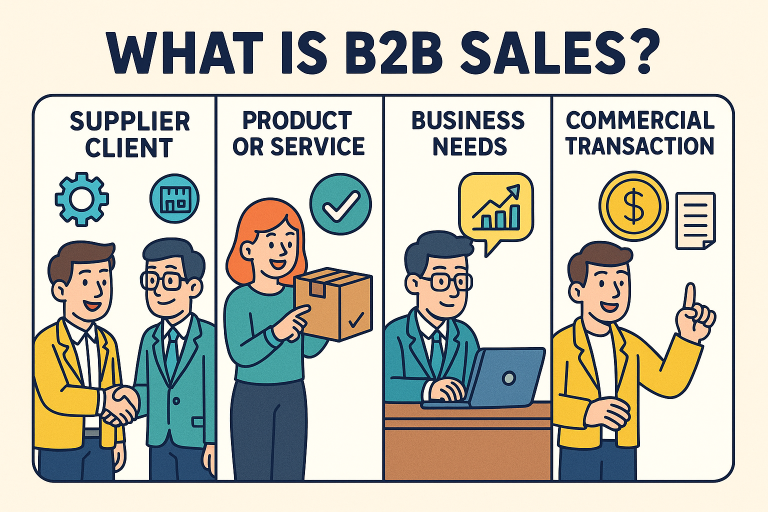In today’s digital era, it is no longer sufficient for companies to rely solely on high-quality products and services to maintain a competitive edge. To sustain long-term growth, organizations must optimize customer relationship management and streamline their sales processes. This is where modern CRM (Customer Relationship Management) systems come into play.
The Cost of Traditional, Fragmented Sales Management
Many organizations still operate with outdated or fragmented sales management models. For example:
- Massive investments are made to acquire leads through multiple channels, yet the conversion rates remain frustratingly low.
- High-quality leads often end up buried in individual salespeople’s notes, failing to contribute to a centralized customer asset pool.
- Sales performance becomes difficult to predict, and promising opportunities are frequently missed due to lack of visibility and standardization.
- Sales managers struggle to monitor progress or enforce accountability, leading to client churn and internal inefficiencies.
Such a “rough management” approach not only hinders sales efficiency but also prevents companies from building long-term customer relationships or optimizing revenue potential.
CRM-Driven Precision Sales Management: 3 Key Dimensions
Modern CRM platforms enhance deal conversion rates by refining three critical aspects of sales operations: lead management, behavior management, and sales process control.
1. Lead Management: Capturing Every Opportunity
✔ Full lead lifecycle coverage
CRM systems enable companies to manage leads from acquisition to conversion, including qualification, scoring, assignment, and follow-up. Features like lead claiming, sharing, recycling, and transfer help ensure every lead is fully utilized—no opportunity left behind.
✔ Tiered customer segmentation
With CRM, businesses can segment prospects by value or type and deploy targeted sales strategies. For example, key accounts from strategic industries can be assigned dedicated teams and customized solutions, ensuring better engagement and higher win rates.
✔ Building a 360° customer view
CRMs consolidate scattered client data into a unified customer profile, turning raw information into actionable insights. This prevents customer attrition, supports accurate targeting, and empowers data-driven decision-making.
2. Sales Activity Management: Enhancing Productivity Through Visibility
✔ Streamlined work reporting
Sales reps can submit real-time updates via mobile CRM apps. Managers gain immediate visibility into field activities, improving oversight and reducing reporting friction.
✔ Intelligent visit tracking
Sales visits—including whom, when, where, and how often—are recorded and categorized. This allows for performance analysis, compliance tracking, and the continuous optimization of sales strategies.
✔ Structured visit models
With eight standardized visit types—route visits, merchandising, co-visits, verification, event audits, surprise visits, ad-hoc meetings, and planned follow-ups—teams can execute visits more consistently and efficiently.
3. Sales Process Management: Driving Efficiency and Compliance
✔ Lead-to-Cash (L2C) integration
CRM enables end-to-end visibility from lead acquisition to payment collection, covering opportunity management, product configuration, quotation, order fulfillment, and invoicing. This seamless flow accelerates business cycles and ensures no step is missed.
✔ Enforced process standards
By setting execution rules at every stage, CRMs ensure disciplined sales operations. For instance, duplicate opportunity detection, approval flows, and automated follow-up reminders help prevent deal conflicts and lost prospects.
✔ Sales forecasting
Using a visual sales funnel, CRM empowers managers to assess deal pipeline health and accurately forecast revenue. This enables proactive strategy adjustments and better resource planning.
Final Thoughts: CRM is a Long-Term Strategic Investment
Adopting a CRM system is not a quick fix—it’s a long-term transformation. Success requires:
- A clear and aligned sales strategy
- Commitment to data-driven process optimization
- An agile, collaborative sales team empowered by technology
Companies that are patient, methodical, and committed to refining their sales management systems will be best positioned to unlock CRM’s full potential and drive sustainable growth.



